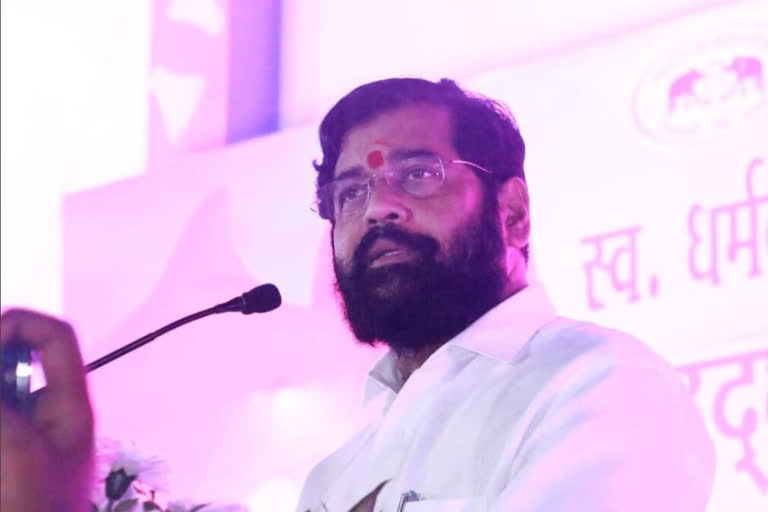Hyderabad: Triggering a dramatically developing political unrest in Maharashtra, Shiv Sena leader Eknath Shinde on Tuesday reached Surat with a few MLAs, thereby strongly implying that he might soon join hands with Mahavikas Aghadi's political rival Bharatiya Janata Party. But what points at a well-thought attempt at partisan politics, is in fact a situation that would need certain things to be in place for it to succeed.
Shinde, whose sudden move has managed to grab all eyes at him, needs a large number of MLAs behind him to claim victory at what he is seemingly trying to attempt. In case Shinde fails to get the backing of this particular number of MLAs, he and the MLAs who are already with him may be found in a quandary over his next political move -- essentially to save his own career and that of all the MLAs with him. With this move that he has already initiated, Shinde is risking his legislature seat, while also putting the political future of other MLAs who are with him in jeopardy.
There are a set of laws and rules that come into play here, the most crucial of which is the anti-defection law. Under this law, legislators can change their parties without any risk of disqualification in various specified circumstances. It allows the party to merge with another, but only if 2/3 members agree to this merger. None of the members faces defection charges in such a case. Whereas in other cases, if a person was elected as chairman or speaker, and has to resign from his party because of that, he/she can rejoin the party after leaving that post.
Also read: Maha crisis: Eknath Shinde speaks to CM Uddhav Thackeray, asks him to 'ally with BJP'
However, the law also demands disqualification as a member of the House if an independently elected member of the House joins any political party after such an election. Additionally, if a nominee joins any political party within a period of six months after taking office in the House, he is disqualified from being a member of that House. The presiding officer of the House, in such a scenario, has the power to cancel the membership of that member. However, if more than 2/3 of the elected members transfer, their membership is not cancelled. Moreover, the presiding officer may cast his/her vote in favour of any party (belonging to the ruling party but in favour of the opposition), without being prosecuted within the framework of the prohibition law.
Looking statistically at the current situation in Maharashtra, the chief element of the ruling Mahavikas Aghadi (MVA) in the state -- Shiv Sena -- had a total of 55 MLAs until last month before the feat on one of the party's MLAs. The death of Ramesh Latke -- the deceased MLA from Mumbai -- has thus left the party with 54 MLAs. The 2/3rd of this number would be the exact number of MLAs Shinde would need to take a safe exit without being affected by the anti-defection law. To conclude, what the situation statistically demands if the anti-defection law is to be adhered to, is for Eknath Shinde to have the backing of a total of 37 MLAs to deem successful at his attempt at partisan politics.
With the development over the matter still in play, the MLA has reportedly reached Assam this morning with around 40 MLAs -- more support than he needs -- almost confirming his victory at the made attempt. At the airport, a BJP MP received Shinde and the said MLAs at the airport, further laying grounds for the speculation of what might happen next. It would be interesting to see the turn of events that surface, given the recent dramatic political history of Maharashtra that has managed to surprise people in barely expected ways before.



